Pamaribo, Suriname, 05 Muharram 1438/06 October 2016 (MINA) – Following the visit of the secretary-general of the Organisation of Islamic Cooperation (OIC), Iyad Ameen Madani, and his delegation to both Suriname and Guyana last week, the ministry of foreign affairs of Suriname has reported that the OIC is willing to finance the construction of a bridge across the Corentyne River at the eastern frontier between Guyana and Suriname in an effort to enhance regional economic and physical integration.
This type of project falls under the rubric and vision of the Arab League and South American group, UNASUR, which meets at the heads of government level every three years. Such a project would support and promote regional integration and economic development, which Madani termed “a triangular relationship between the OIC, Guyana and Suriname”, Caribbean News Now reported on Wednesday.
The OIC will also work with UNASUR in this effort.
According to the foreign minister of Suriname, Niermala Badrising, who had several meetings with Madani while he was in Suriname, the OIC and its financial arm, the Islamic Development Bank (IsDB) is in favour of the execution of major infrastructure projects in South America. One of these projects that can finally be realized, according to Badrising, is the bridging of the Corentyne River between Guyana and Suriname.
Also Read: Finland’s Largest Retailer Halts Israeli Product Sales
Badrising, who has been working closely with the OIC and the IsDB, said in a statement that a bridge over the Corentyne River linking the two countries “could become a reality if the countries involved are in agreement and if the project is feasible. It is one of the opportunities that we have to utilize OIC funds, and the project will complement UNASUR’s regional integration vision.”
The previous government in Guyana had agreed to partner with Suriname to seek finance from China to bridge the Corentyne River. However, there has since been no movement on the project. It is not known if the project was discussed when Madani met the foreign minister of Guyana, Carl Greenidge, in Georgetown.
In fact, the government of Guyana kept the entire OIC secretary general’s visit more or less a secret. Symbolism was strikingly missing – in the one single picture that was released by the OIC Secretariat of the visit to Guyana, the OIC flag was noticeably absent at a bilateral meeting with Greenidge. Further, there was no press statement issued during or after Madani’s visit by the government of Guyana.
For Guyana to tap into the benefits of OIC and IsDB membership, the relationship must mature to become one of trust and understanding. In Paramaribo, Madani, in a meeting with the press, stated categorically that “We are not a religious organization, and the OIC hails Suriname as an example of a multicultural country where different ethnicities and religions peacefully coexist.”
Also Read: 1,000th Western Military Supply Plane Lands in Israel Since Gaza War
Madani stressed that the OIC is not interested in the internal affairs of Suriname; it is not looking to cause conflicts in Suriname or in the region.
“Suriname and Guyana’s membership in the group should be used to its fullest so as to contribute to regional integration and economic development,” he emphasised.
Madani said that he is happy that Suriname is active in the OIC, unlike other countries who are not seizing the opportunities. Guyana is not an active member of the OIC and there are conflicting narratives as to the reason behind it.
Meanwhile, President Desi Bouterse on Friday defended Suriname’s relationship with the OIC and the IsDB. He urged Suriname to take full advantage of the US$1.8 billion soft loan from the Bank.
Also Read: Trump to Meet with NYC Mayor-Elect Mamdani at White House on Friday
He warned that there are forces acting against these developments and Suriname’s cooperation with the OIC and IsDB in his government’s effort to stabilize the economy of the country.
Has no human face
Developing countries have long complained that the IMF is an institution willing to provide cash when they face economy calamity; however, the austerity measures the IMF imposes has no human face.
It forces governments to cut back on vital socio-economic and welfare programs such as food, healthcare and education.
Also Read: Syria, Jordan Condemn Netanyahu’s Visit to Occupied Syrian Buffer Zone
The IsDB has financed some mega projects in Tunisia, Kazakhstan, Morocco and Saudi Arabia. It supports projects in infrastructure, renewal energy, urban development, agriculture, health care and education.
The group also provides technical support, capacity building, research and training, and co-financing with other partners like the Abu Dhabi Fund for Development; Kuwait Funds, Arab Fund for Economic and Social Development; Arab Bank for Economic Development in Africa (BADEA), and the OPEC Fund for International Development (OFID).
The OIC and the IsDB also work closely working the World Bank and UNDP. (T/R07/R01)
Mi’raj Islamic News Agency (MINA)
Also Read: UNIFIL Reports Over 7,300 Israeli Violations of Lebanese Airspace Since Ceasefire





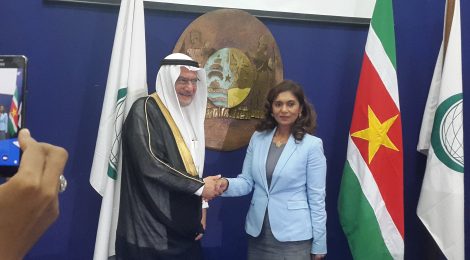




![Israeli tanks and APC’s gather by the Israeli – Lebanese border. Amid Israel’s escalating campaign against Hezbollah in Lebanon on September 30, 2024. [Erik Marmor/Getty Images]](https://en.minanews.net/wp-content/uploads/2024/10/IMG_20241001_203226-300x197.jpg)




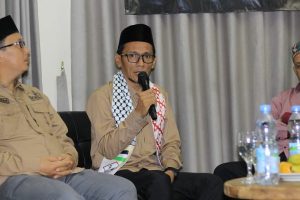
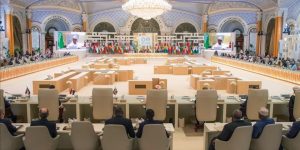
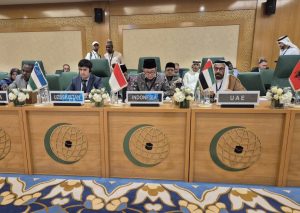
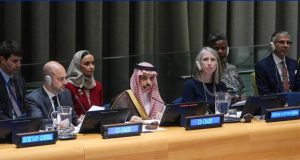
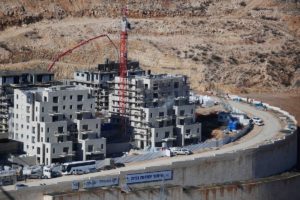













 Mina Indonesia
Mina Indonesia Mina Arabic
Mina Arabic